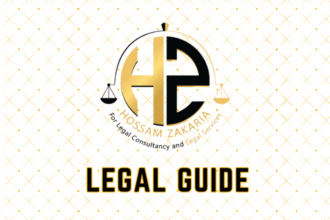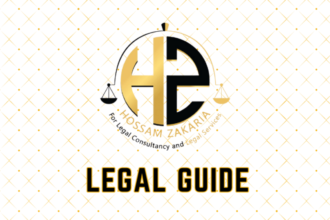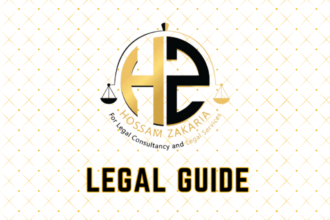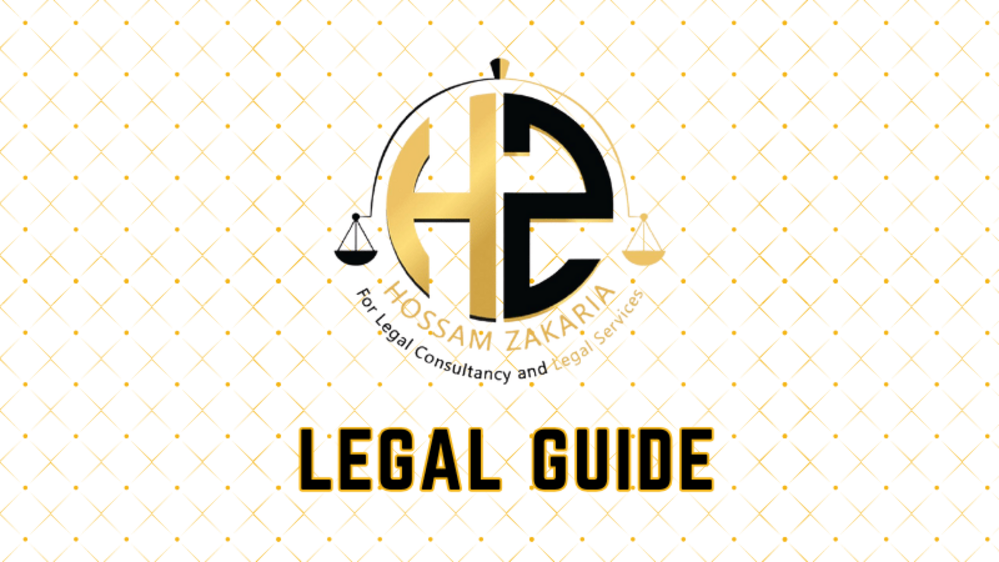Introduction
In today’s rapidly evolving regulatory landscape, maintaining effective compliance with anti-corruption and business ethics laws is not only a legal obligation but a cornerstone of sustainable corporate success. This is particularly relevant for businesses in the UAE with commercial ties or expansions into Saudi Arabia, where recent legal reforms have significantly strengthened the anti-corruption framework. For UAE-based executives, compliance officers, and legal practitioners, understanding these changes is critical—not just to avoid liabilities but to foster a culture of integrity that aligns with global best practices and local regulations.
The Kingdom of Saudi Arabia, through organisations such as the Oversight and Anti-Corruption Authority (Nazaha), has made notable advancements in its fight against corruption. Its legal landscape is constantly progressing, reflecting international anti-bribery standards, including those prescribed by the United Nations Convention against Corruption (UNCAC). For UAE firms, many of which engage in cross-border transactions or maintain joint ventures in Saudi Arabia, these developments necessitate a strategic, forward-thinking approach to compliance. This article provides an in-depth legal analysis and practical guidance for UAE businesses navigating Saudi Arabia’s anti-corruption and ethics regime, informed by recent legislative updates and authoritative interpretations from UAE and Saudi sources.
Table of Contents
- Overview of Saudi Anti-Corruption and Business Ethics Laws
- Recent Legal Updates and Their Relevance to UAE Businesses
- Key Legal Provisions and Enforcement Mechanisms
- Comparing Prior and Current Legislation
- Implications for Cross-Border UAE–Saudi Operations
- Case Studies and Practical Examples
- Risks of Non-Compliance
- Developing Effective Compliance Strategies
- Conclusion and Best Practices
Overview of Saudi Anti-Corruption and Business Ethics Laws
Legal Framework
Saudi Arabia’s modern anti-corruption regime is anchored by the Anti-Bribery Law (Royal Decree No. M/36 of 1992, as amended) and other key legislation, including the Government Tenders and Procurement Law and the Code of Conduct for Public Officials. Collectively, these instruments address a spectrum of offences—bribery, embezzlement, abuse of function, money laundering, and conflicts of interest—imposing strict penalties for both public and private sector misconduct.
Nazaha, Saudi Arabia’s principal anti-corruption authority, plays a vital role in investigation, enforcement, and policymaking. Furthermore, these frameworks reflect alignment with international agreements, notably the UNCAC, to which the UAE is also a party. UAE-based organizations with Saudi interests must, therefore, ensure dual compliance to avoid cross-jurisdictional risks.
Relevance for UAE Businesses
For UAE companies operating or contracting in Saudi Arabia, these laws impact:
- Joint ventures and agency relationships
- Government procurement and bidding
- Mergers, acquisitions, and due diligence processes
- Corporate governance and internal policies
Recent amendments substantially increase exposure for improper payments, gifts, facilitation payments, or failure to implement effective internal controls.
Recent Legal Updates and Their Relevance to UAE Businesses
Major Amendments (2021–2025)
The core provisions of Saudi Arabia’s Anti-Bribery Law were amended several times over the last five years—most notably in Royal Decree No. M/41 of 1440H (2018) and M/32 of 1442H (2021)—broadening the definition of bribery and introducing new offences. Key updates include:
- Extended liability to private sector actors and non-Saudi nationals
- Inclusion of indirect forms of bribery and non-monetary advantages
- Enhanced protection for whistleblowers
- Mandatory compliance and training requirements for certain organisations
- Higher penalties and confiscation of illicit gains
Impact on UAE Businesses
Given the extraterritorial application of some provisions, even acts partly committed outside Saudi Arabia—but with an impact on Saudi public interests—can trigger enforcement actions. For example, a payment arranged in the UAE for a Saudi official could attract liability under Saudi law. There is also regulatory convergence: UAE’s updated anti-corruption standards, laid out in Federal Decree Law No. 31 of 2021 (Penal Code), share similar language regarding bribery and abuse of office.
Table: Selected Saudi Anti-Corruption Updates
| Aspect | Before Recent Amendments | After Amendments (2021–2025) |
|---|---|---|
| Scope of Law | Primarily public officials | Public and private sector, non-nationals |
| Definition of Bribery | Direct payments | Direct and indirect, monetary and in-kind |
| Whistleblower Protection | Limited | Substantially strengthened |
| Penalty Levels | Moderate fines/prison | Increased fines, longer imprisonment, asset confiscation |
| Corporate Liability | Individual-focused | Expanded to legal entities and executives |
Visual suggestion: Process flow diagram of a Saudi enforcement investigation (from complaint/review through to prosecution).
Key Legal Provisions and Enforcement Mechanisms
1. Prohibitions and Definitions
Saudi Arabia’s Anti-Bribery Law criminalizes the request, acceptance, or offering of any undue advantage by public officials, private sector employees, foreign officials, and intermediaries. Notably, this includes:
- Money, gifts, hospitality, loans, or favors offered or received for influencing a business or official act
- Bribes through a third party (e.g., agent, partner, consultant)
- Non-monetary advantages, such as job offers or preferential contracts
2. Offender Categories
Recent amendments broaden culpability to include:
- Company directors and senior management, even where knowledge of bribery is established to a civil or criminal standard
- Any private sector employee or supplier involved in public procurement or commercial dealings
3. Reporting and Investigation
Nazaha has extensive investigatory powers, including:
- Seizing documents and freezing assets
- Coordinating with law enforcement across GCC states, including the UAE
- Anonymous whistleblowing channels
Failure to report, or acts of retaliation against whistleblowers, can result in criminal sanctions.
4. Penalties
Penalties under Saudi law are severe and can include:
- Imprisonment of up to 10 years
- Fines equivalent to five times the value of the bribe
- Confiscation of proceeds
- Exclusion from public procurement or blacklisting
Visual suggestion: Penalty comparison chart for bribery offences before/after law changes.
Comparing Prior and Current Legislation
Why Comparison Matters
Understanding how the regulatory environment has shifted enables UAE organizations to calibrate their compliance frameworks and mitigate unforeseen risks. The following table illustrates major changes:
| Area | Pre-Amendment | Post-Amendment |
|---|---|---|
| Corporate Responsibility | Only individuals liable | Corporates and senior officers face liability |
| Type of Bribery | Financial only | Financial and non-financial incentives |
| Reporting Requirements | Optional/limited | Mandatory reporting and whistleblower safeguards |
| Facilitation Payments | Often tolerated | Explicitly prohibited |
| Penalties | Lesser fines/prison | Stricter sentences, asset seizure and corporate sanctions |
UAE Parallels
The UAE’s own Federal Decree Law No. 31 of 2021 modernizes earlier anti-corruption provisions, reflecting similar trends as those in Saudi law—particularly regarding extra-territorial jurisdiction and enhanced whistleblower protections. UAE companies must be mindful of dual obligations and ensure compliance programs account for both regulatory regimes.
Implications for Cross-Border UAE–Saudi Operations
For UAE organizations engaged in activities in Saudi Arabia, several unique compliance challenges arise:
- Dual reporting standards and differing definitions of misconduct
- Mandatory training for UAE staff deployed to Saudi projects
- Reconciling discrepancies in anti-bribery due diligence, internal controls, and audit trails
Practical Advisory Points
- Contractual Safeguards: Ensure all contracts with Saudi counterparties include robust anti-corruption representations, warranties, and termination rights where breaches occur.
- Due Diligence: Adopt a risk-based due diligence model for local partners, including third parties and agents, with a clear audit trail.
- Training and Culture: Implement regular anti-bribery training tailored to relevant risks, languages, and business customs.
- Ongoing Monitoring: Appoint compliance liaisons to coordinate reporting, investigations, and audit responses between UAE and Saudi business units.
Case Studies and Practical Examples
Case Study 1: Improper Payment through Third Party Agent
Scenario: A UAE-based engineering company, bidding for a Saudi infrastructure project, engages a local agent who offers gifts to Saudi officials without the UAE company’s explicit approval.
- If the UAE company fails to demonstrate adequate procedures (as required under Saudi 2021 amendments), both the company and its managers may be held liable—even if they were unaware of the precise conduct.
- Mitigation: Deploy robust screening, clear mandates for agents, and real-time compliance oversight. Maintain detailed transaction logs and approval protocols.
Case Study 2: Cross-Border Whistleblower Complaint
Scenario: An employee of a UAE-Saudi JV suspects bribery and reports it anonymously to Nazaha. Post-amendment laws require strict protection for the whistleblower and immediate self-reporting by the JV’s compliance officer.
- Retaliation or delayed reporting subjects both entities to substantial penalties under Saudi (and potentially UAE) law.
- Mitigation: Integrate joint whistleblower policies, transparent reporting channels, and cross-border legal reviews.
Case Study 3: Hospitality and Business Gifts
Scenario: A UAE supplier entertaining Saudi customers provides travel and luxury accommodation as part of its business development strategy.
- While “reasonable” gifts may be customary, excessive hospitality is now treated as a form of bribery unless properly documented, justified, and approved by compliance functions in both jurisdictions.
- Mitigation: Set and enforce clear thresholds for acceptable business courtesies, subject to legal counsel review.
Visual Suggestion: Compliance Checklist Table
| Compliance Step | Explanation | Frequency |
|---|---|---|
| Risk Assessment | Identify specific bribery risks for each Saudi project or JV | Semi-annual |
| Due Diligence on Partners | Review background and reputation of all Saudi agents and partners | Before engagement |
| Training and Communication | Anti-bribery workshops for UAE staff on Saudi law | Annual/Ad-hoc |
| Monitoring and Auditing | Ensure compliance controls and conduct random audits | Quarterly/Annual |
| Whistleblower Channels | Ensure accessible, anonymous reporting tools for staff | Ongoing |
Risks of Non-Compliance
Legal and Reputational Consequences
Failure to comply poses grave risks to UAE businesses operating in Saudi Arabia, including:
- Criminal prosecution of executives and staff
- Heavy fines, asset forfeiture, and debarment from future contracts
- Severe reputational harm across both GCC markets
- Regulatory interventions by UAE authorities for extraterritorial offences
Enhanced Regulatory Coordination
The GCC Convention for Combating Corruption, signed by both the UAE and Saudi Arabia, facilitates intelligence sharing and cross-border investigations. This increases the likelihood that misconduct in one country will be detected, investigated, and penalized in the other.
Internal Risks
Beyond legal exposures, non-compliance risks include:
- Loss of investor and stakeholder confidence
- Internal fraud, employee attrition, and audit failures
- Insurance coverage limitations for wilful misconduct
Developing Effective Compliance Strategies
Building a Proactive Program
Elite compliance is no longer just policy-driven—it requires ongoing, evidence-based controls and a robust “tone from the top.” Practical strategy recommendations include:
- Executive Commitment: Board and C-suite should sponsor anti-corruption initiatives and endorse a zero-tolerance approach.
- Risk-Based Controls: Map out specific exposure points within Saudi-facing operations; tailor controls to sector, transaction value, and partner profile.
- Policy Harmonisation: Develop cross-jurisdictional policies that address both UAE and Saudi requirements, bridging any legal gaps.
- Incident Management: Establish clear protocols for detection, escalation, and remediation of concerns—ensuring prompt cooperation with both Nazaha and relevant UAE authorities.
- Continuous Improvement: Regularly review and update compliance programs to reflect legal developments, audit findings, and enforcement trends.
Visual Suggestion: Implementation Roadmap
- Preparation: Compliance gap analysis
- Rollout: Training and policy adoption
- Review: Ongoing monitoring, audits, and reporting
- Respond: Incident handling and leadership engagement
- Refine: Post-audit improvements and risk recalibration
Conclusion and Best Practices
Saudi Arabia’s recent legal reforms in anti-corruption and ethics compliance send a clear signal to the GCC and beyond: anti-bribery enforcement is intensifying, with profound implications for UAE-based organizations. The convergence of regulatory standards across Saudi and UAE law means that businesses must adopt a unified, cross-border compliance architecture. Ignorance or passive monitoring is no longer defensible—effective risk management, culture shaping, and regulatory engagement are now indispensable.
In the coming years, we anticipate even greater regulatory harmonisation, technological integration in compliance (AI-driven audit tools, data analytics), and more coordinated investigations between regional authorities. UAE organizations should seize the opportunity to not only comply, but to differentiate themselves as regional leaders in business ethics, transparency, and sustainable corporate conduct.
Key Best Practices:
- Monitor all legal updates—both in Saudi Arabia (via Nazaha) and in the UAE (including MOJ and legal gazettes).
- Benchmark and harmonise internal policies against both countries’ best practices.
- Document every control, decision, and remedial action for future audit and legal defence.
- Engage experienced legal counsel in both jurisdictions for cross-border or complex matters.
- Foster a transparent, accountable corporate culture to elevate both compliance and business resilience.
Staying proactive is no longer optional. As the regulatory terrain shifts, organizations headquartered in the UAE and conducting Saudi business must embed ethics and anti-corruption excellence at every organisational level, securing long-term reputational and commercial rewards.



